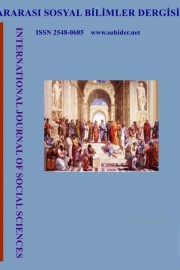Yaygın Ve Yetişkin Din Eğitimi Kurumu Olarak Kur’an Kursları Ve Dindarlık (Bilecik Örneği)
Widespread and Adult Religious Education Institutions as the Koran Courses and Religious Devotion (Bilecik Sample)
Author(s): Emre YılmazSubject(s): Islam studies, Higher Education , Sociology of Education, Sociology of Religion
Published by: SD Yayınevi
Keywords: Koran courses; Religiosity; Religiosity Scale; Religiosity dimensions;
Summary/Abstract: This research is a field research conducted by adult female students studying in Koran courses to show the effects of Koran and religious education on the level of religiosity of students. Survey method was used in the field study and the effect of religious courses on the level of religiosity of the students was examined by using the Religiosity Scale to measure the religiousness level of those who participated in the research. The universe of the research consists of 30 female Quran courses (53 classes) carrying out educational activities depending on the Bilecik Provincial Mufti in 2014-2015 academic year and 800 adult women studying in these courses. SPSS v20.0 (Statiscal Package for Social Sciences) package program was used for the statistical analysis of the data obtained in the research and descriptive statistics such as frequency analysis, arithmetic mean, standard deviation, percentage were used in the analysis of the data. As a result of the statistical analysis, it is seen that there is a change / difference between the situation of the students of the Qur'an Course before the cursive course and the situation after the curriculum education. it was found that the levels of religiosity, religiosity and perceived religiosity of the students increased significantly and significantly in the second measure compared to the first measure and that the highest average of the Qur'an students in the first and second measures of religiosity dimensions were religiosity dimensions from the Religiosity Scale subscales it is determined that this is followed by other dimensions and the lowest point average belongs to the dimension of worship. In sum, it has been determined that the education given in the Quran courses contributed positively to religious beliefs and worship, religious perceptions and living conditions of adult ladies who are educated in these courses, and the level of religiousness of the students increased.
Journal: Uluslararası Sosyal Bilimler Dergisi
- Issue Year: 2/2018
- Issue No: 12
- Page Range: 65-86
- Page Count: 22
- Language: Turkish

